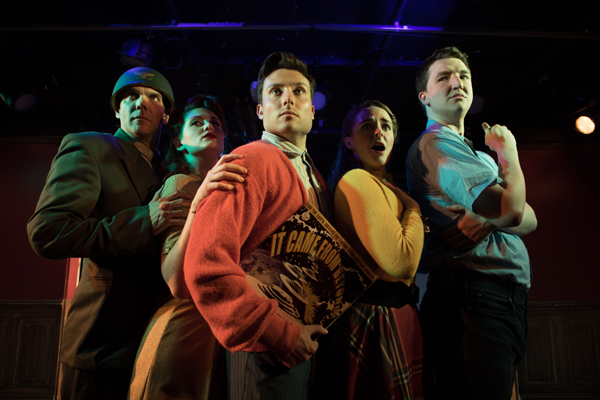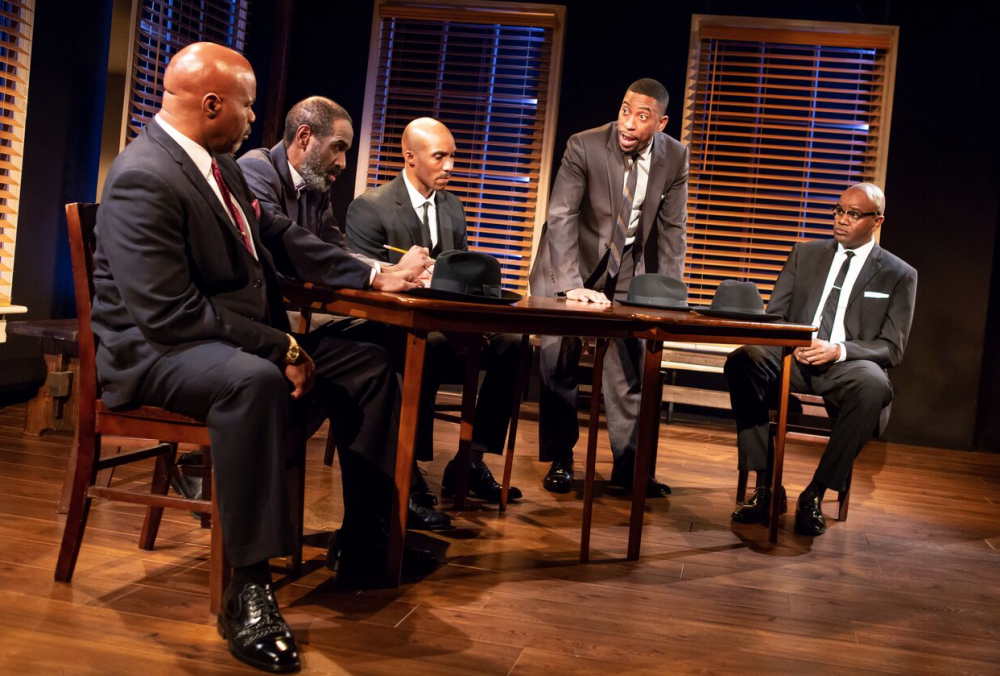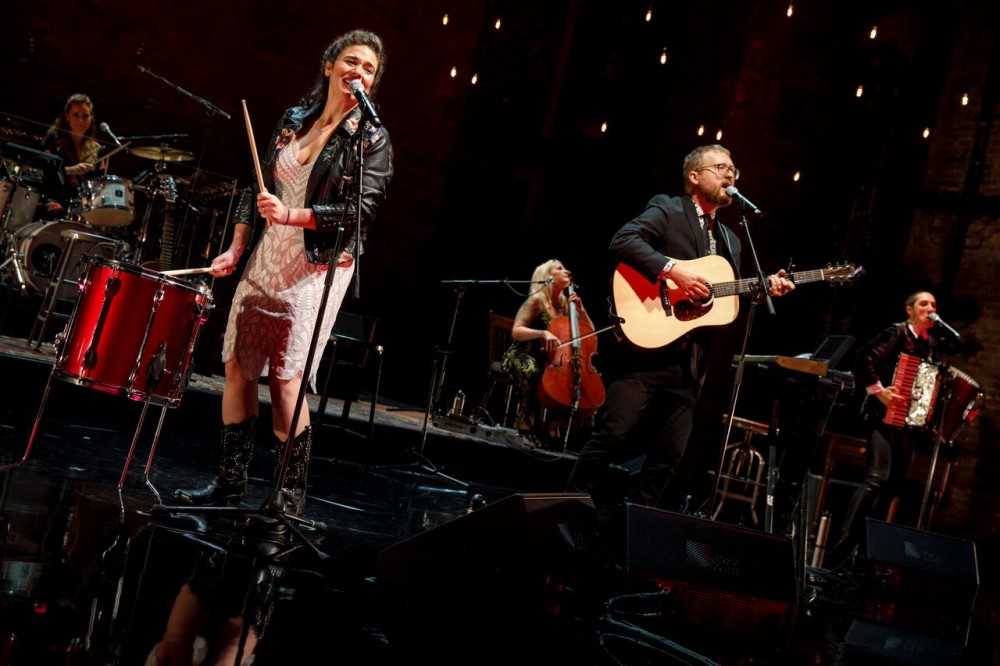
Rachel Adams as Julie Haydon, Paul Thomas Ryan as Tennessee Williams and PennyLynn White as Laurette Taylor

Kristen Gehling as Margo Jones, Paul Thomas Ryan as Tennessee Williams and PennyLynn White as Laurette Taylor
Review by Myra Chanin
I spent Memorial Day weekend 2015 following playwright Steven Carl McCasland through the 20th century. Our excursion began with cocktails at Gertrude Stein’s with a hostile handful of literary bitches, then moved on to the summer of 1941 at the pre-Presidential Kennedy Hyannisport cottage where the family attempted in vain to stop the Ambassador from turning his intellectually and emotionally disabled oldest daughter Rosemary into an incontinent two year old. Our third stop, in 1944, was in Laurette Taylor’s studio where the totally terrified actress, sober after decades of alcoholism – probably exacerbated by ad nauseum tours of Peg of My Heart – reluctantly girded her emotional loins to return to The Great White Way in a play written by an equally terrified, hyper-critical and still alcoholic Broadway newcomer, Tennessee Williams. The play? The Glass Menagerie. Her performance? Its unanimously rapturous reviews are still rapturously recalled by theater cognoscenti including Hal Prince: I knew when I watched it from the balcony, you’ll never see greater acting as long as you live, and former New Yorker Editor, Robert Gottlieb: I knew it was the finest acting I had ever seen and more than sixty five years later I still feel that way. Her acting wasn’t like real life. It was real life.
So one might ask, did Pennylynn White as Ms. Taylor in McCasland’s What Was Lost replicate a performance worthy of equally high praise? To employ the phrase made immortal by the world’s greatest nitpicking kvetch, Larry David, She was pretty good, pretty good. She made Laurette Taylor’s fears so real to me that I fought back the tears welling up in my eyes during her opening scene with Kimberly Faye Greenberg, as Taylor’s devoted daughter Marguerite. Pennylynn White gave the most convincing portrayal of the fear of a recently recovering alcoholic I’ve ever seen from anyone who wasn’t one.
Paul Thomas Ryan, who as Joe Kennedy Jr. I watched enlist in the army that afternoon, gave a masterful performance as a young, handsome, ambitious pre-always-totally-drugged-and/or-besotted Tennessee Williams, equally terrified and furious that this frail actress totally @#$% up his future. His rage at her insecurity becomes her springboard to glory.
I’d already seen the other cast members in McCasland’s Repertory Series. They all proved as splendid in supporting roles as they’d been in featured ones, Brian Piehl, however, deserves special mention. He’d played the Bobby Kennedy as a boy that afternoon, but really matured into his dual role of Randolph Echols, the stage manager and Tennessee’s lover by evening.
Costume design by Somie Pak was, as always, exquisite, proving again what can be accomplished despite a dearth of funding with a plethora of style and imagination.
What is there to be said for McCasland’s direction? He knew exactly what playwright wanted and got it for him!
One last note: I also saw Der Kanarienvogel, written and directed by You Know Who, about Elisabeth Schwarzkopf, as renowned as a singer of Mozart, Schubert and Strauss as she was censured for her membership and more in the Nazi Party. How much more? As Frau Blucher admitted in Mel Brooks’ Young Frankenstein about his pere: “Goebbels vas her boyfriend.” But when Anna Kirkland sang Vissi D’arte during Schwarzkopf’s first meeting with Goebbels, live! four feet from my chair! WWII was over. I felt like I had been invited into a diva’s studio.
Why does McCasland research and write about such diverse topics? For the best of all possible reasons. Because they pique his fancy. And after you feast on his take on these fascinatingly complex lives you’ll be as captivated with them as he was. Try to see at least one of these plays before the program ends on May 31. Each one has set me directly to Google to discover all I can about these extraordinary creatures.
ClarionTheatre.org 309 E 26th St, New York, NY 10010 (212) 684-2690
*Photos: Samantha Mercado-Tudda (click photos to enlarge)




















